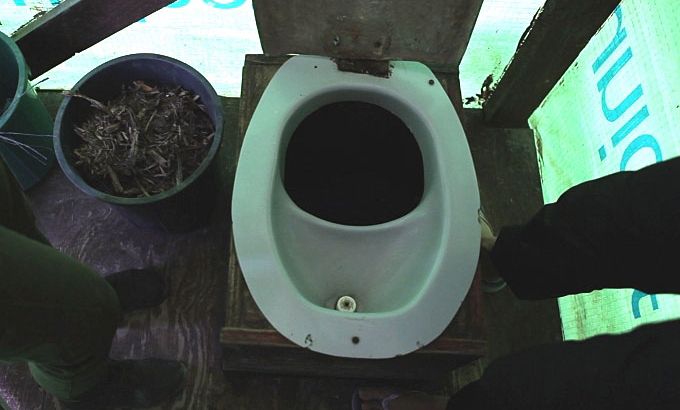
Eco Toilets
How an innovative toilet-to-garden process is turning waste into resource in Haiti’s camp for the internally-displaced.
Gelareh Darabi is attending a lively party at a temporary camp in Haiti’s Cite Soleil.
The reason for the celebration – the unveiling of a new, environmentally-friendly toilet, which will also be used to create much-needed compost for the adjacent community garden.
Keep reading
list of 4 itemsTurtles swimming to extinction in Malaysia as male hatchlings feel heat
Could shipping containers be the answer to Ghana’s housing crisis?
Thousands protest against over-tourism in Spain’s Canary Islands
In many of Haiti’s camps, hundreds of residents are obliged to share a single toilet, so it is no wonder that this new innovation is welcomed.
The slums and camps of Haiti, as is the case in most developing countries, have woefully inadequate sewage systems which means that human waste spills onto the streets and into the water system.
As well as being a sanitation problem, it is also a huge environmental problem. If not properly treated, human sewage can play havoc with ecosystems, destroying lakes and rivers by depleting oxygen.
This is the case in Haiti, where rivers and canals are full of algae.
SOIL, a Haiti-based charity, is addressing the problem at its root by building eco-friendly toilets that are easy to maintain.
Since the 2010 earthquake they have set up more than 200 of these toilets in communities and camps and around Haiti, serving 20,000 people.
SOIL’s dedicated team takes the waste to be composted at their waste treatment facility, the first ever in Haiti. Not only does this process get rid of the harmful pathogens, but it also creates vital fertiliser for Haiti’s overused and barren agricultural land.
The colourful new community garden, ‘Jaden Tap Tap’, is now thriving and beginning to produce food for camp residents.
Gelareh Darabi pitches in with the toilet-to-garden process, and finds out how these simple but effective eco-loos are turning waste into a resource.
earthrise airs each week at the following times GMT: Friday: 1930; Saturday: 1430; Sunday: 0430; Monday: 0830. Click here for more on earthrise. |
